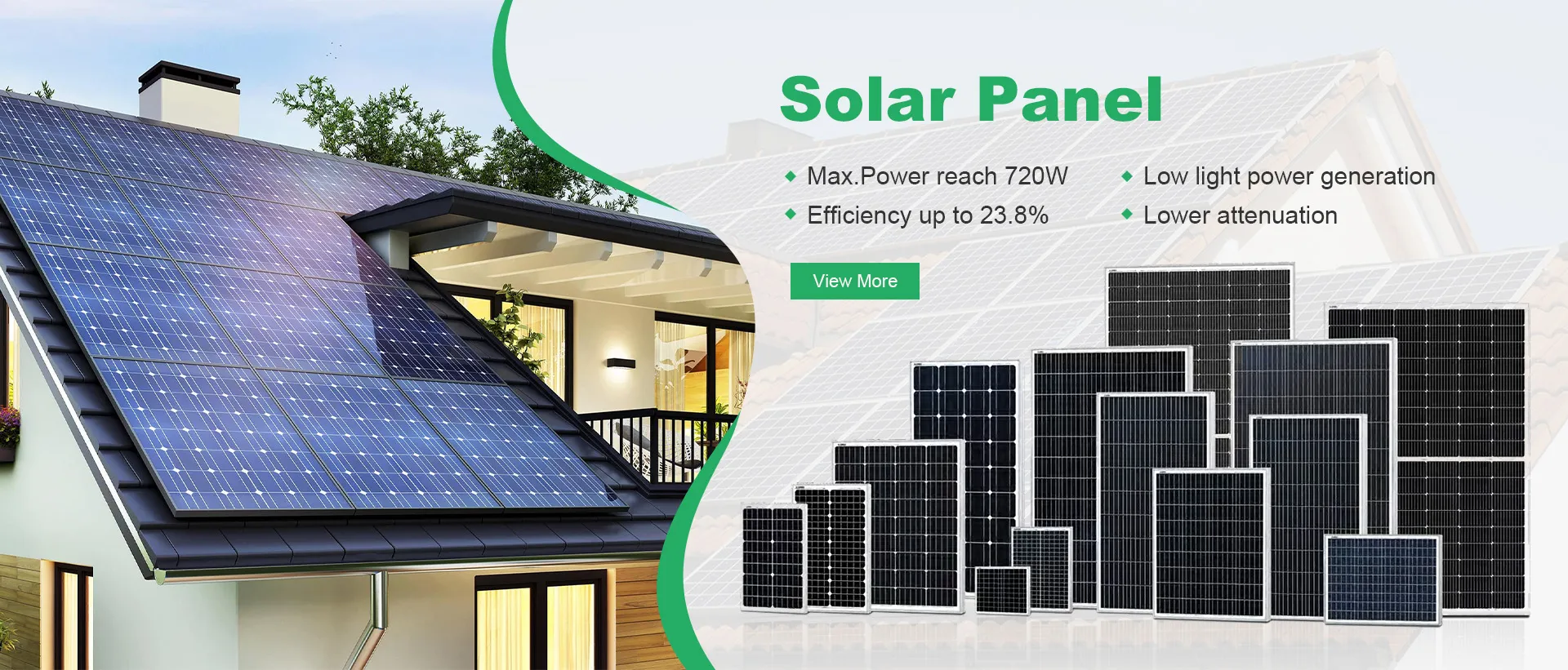Understanding the Lifespan and Efficiency of Solar Panels for Sustainable Energy Solutions
The Lifetime Efficiency of Solar Panels An In-Depth Analysis
The increasing global demand for sustainable energy sources has led to a significant focus on solar energy, and consequently, solar panels have become a vital component in the renewable energy landscape. One of the essential characteristics that determine the viability and effectiveness of solar panels is their lifetime efficiency. This term encompasses both the longevity of the panels and their ability to convert sunlight into electricity over that lifespan.
Understanding Solar Panel Efficiency
The efficiency of a solar panel refers to the ratio of the electrical output it generates to the sunlight that hits its surface. Typically, modern solar panels have efficiencies ranging from 15% to 22%, depending on the type of technology used. Monocrystalline panels tend to be the most efficient, while thin-film solar cells generally have lower efficiency rates. However, efficiency is not the only measure of a solar panel's performance; it must also be considered in conjunction with its lifespan.
The Lifespan of Solar Panels
The average lifespan of solar panels is around 25 to 30 years. High-quality panels, especially those from reputable manufacturers, often come with warranties that guarantee performance for 25 years. During this period, it is crucial to understand how efficiency can degrade over time. Factors such as environmental conditions, maintenance, and technological advancements play significant roles in the actual lifespan and efficiency retention of solar panels.
Most solar panels experience a degradation rate of about 0.5% to 1% per year. This means that after 25 years, a panel that started with 20% efficiency might still operate at 15% to 17.5% efficiency, depending on conditions. The degradation is seldom linear; it often sharpens in the later stages of a panel's life. It's essential for potential solar panel owners to consider these factors when evaluating their investment.
Maximizing Lifetime Efficiency
To maximize the lifetime efficiency of solar panels, several strategies can be employed
solar panel lifetime efficiency

1. Quality Selection Investing in panels from reputable manufacturers known for higher quality and better warranties can lead to both enhanced performance and longer lifespan.
2. Proper Installation Inadequate installation can lead to damage and reduced efficiency. Employ skilled professionals for installation to ensure optimal positioning and set-up.
3. Regular Maintenance While solar panels are generally low-maintenance, occasional cleaning to remove dust and debris, and inspections to check for damages, can significantly help in maintaining their efficiency.
4. Monitoring Systems Installing monitoring systems can help owners track the performance of their solar panels over time, alerting them to any unusual drops in output that may suggest maintenance or repairs are needed.
Future Trends and Innovations
As technology continues to advance, the efficiency and lifespan of solar panels are expected to improve. New materials, such as perovskite solar cells and bifacial panels, promise higher efficiencies and lower degradation rates. Research into recycling old panels also holds great promise, allowing for a more sustainable lifecycle of solar technologies.
Conclusion
Lifetime efficiency is a crucial aspect of solar panels that influences their economic and environmental viability. By understanding and maximizing this efficiency, consumers can make informed decisions that enhance their return on investment while contributing to a more sustainable energy future. As technology progresses, we can look forward to even more efficient and longer-lasting solar panels, revolutionizing how we harness the power of the sun.
-
String Solar Inverter: The High-Efficiency Solution for Smart Solar EnergyNewsJul.14,2025
-
Revolutionizing Rooftop Energy with the Power of the Micro Solar InverterNewsJul.14,2025
-
Power Independence with Smart Off Grid Solar Inverter SolutionsNewsJul.14,2025
-
On Grid Solar Inverter: Powering the Future with Smart Grid IntegrationNewsJul.14,2025
-
Monocrystalline Solar Panels: High-Efficiency Power for the Future of Clean EnergyNewsJul.14,2025
-
Bifacial Solar Panel: A Smarter Investment for Next-Generation Energy SystemsNewsJul.14,2025







